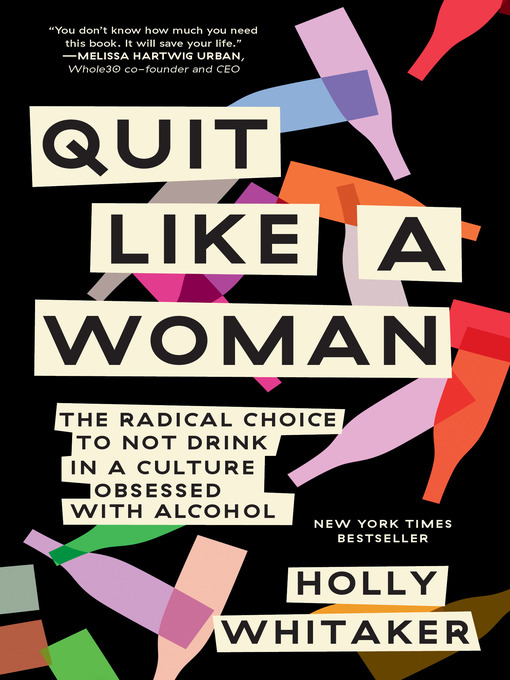
Quit Like a Woman
The Radical Choice to Not Drink in a Culture Obsessed with Alcohol
- اطلاعات
- نقد و بررسی
- دیدگاه کاربران
نقد و بررسی

November 11, 2019
Alcohol is a poison, a drug “designed to keep us down,” writes Whitaker, founder of the online Tempest Sobriety School, in this empowering mix of memoir and self-help aimed at women. A one-time binge drinker and “train wreck,” Whitaker got sober at 33, quit her job at a healthcare startup, and dedicated herself to starting a recovery program that she sees as an alterative to Alcoholics Anonymous, which she calls a dated, white male–centric program focused on ego and goals. She rejects the term “alcoholic” as a life-sentence label, and argues that women and other marginalized people need to be encouraged on their way to sobriety, not forced to repent and made to feel helpless around booze. Whitaker addresses what she sees as society’s unhealthy relationship with alcohol and marketers’ insidious ploys to make consumers think that drinking is normal (“we drink—for fun—the same thing we use to make rocket fuel, house paint, antiseptics”). A celebration of the nondrinking life, the narrative offers personal stories (such as making new friends while sober) and tips on managing one’s recovery (find a therapist, snack healthily). Whitaker is an amiable narrator, and her book serves as a helpful resource for those who wish to eliminate alcohol from their lives, and who want a glimpse at how liberating not drinking can be.

November 1, 2019
Following in the footsteps of titles such as Rachel Hollis's Girl, Wash Your Face, Whitaker (blogger, Hip Sobriety) aims her first book at modern, urban women--specifically those who are concerned that they might have a problem with alcohol. Sharing her own struggles with alcoholism, substance abuse, and bulimia, Whitaker examines the Western cultural acceptance of drinking and how this impacts women who are likely to overindulge. She looks at examples of how society calls for women to strive for perfection: at work, in the physical presentation of their home and bodies, in family matters, etc. The argument here is that the mixture of these two cultural mores (casual drinking and societal expectations of women) has caused an increase in alcohol addiction among the U.S. female population. Throughout, Whitaker outlines her own methods of addiction recovery to encourage women to quit using drinking as a coping mechanism for the pressures of everyday life. VERDICT Part self-help, part recovery memoir, this personal account provides useful and inspiring techniques for addiction recovery.--Ahliah Bratzler, Indianapolis P.L.
Copyright 2019 Library Journal, LLC Used with permission.

December 15, 2019
In this blending of memoir and advocacy for an alcohol-free lifestyle, Whitaker tells of her battle with low self-esteem, an eating disorder, abuse of drugs and alcohol, and what helped her leave the past behind. From reading books to attending meetings, she tried established approaches to ending her substance abuse, but they didn't work for her. Unafraid of a challenge, Whitaker founded her own path to sobriety, and it may offer inspiration to others in need of guidance or permission to find their own paths, too. With a background in health care and technology, she credits her sobriety to her own research and first-hand experiences and provides end notes for readers to follow and confirm her quest. Whitaker presents thought-provoking facts about the effects of alcohol that most readers will be unaware which, once learned, should be cause for serious reflection, including the scientific consensus that drinking alcohol can cause certain types of cancer, including breast cancer. Whitaker is the founder of the alternative treatment program Tempest.(Reprinted with permission of Booklist, copyright 2019, American Library Association.)




دیدگاه کاربران